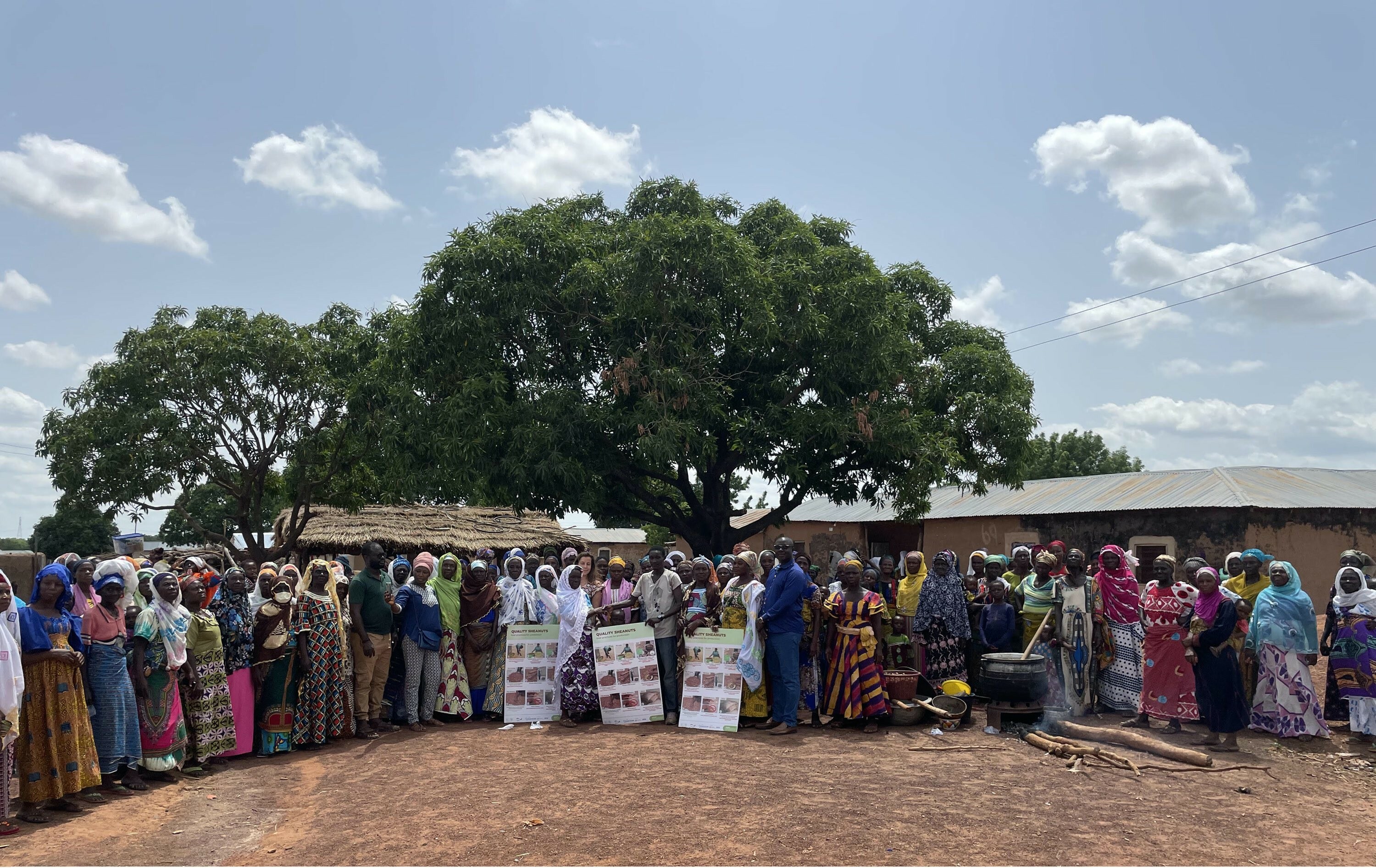Comfort Bugri always knew that her community is rich in shea nuts, but she didn’t know how to utilise the potential. A project implemented by the Global Shea Alliance and private sector partners now offers her new hope. The project trained her and other women on topics of quality shea processing and governance of her cooperative. Through the project her cooperative was matched with companies that are now buying the processed shea nuts.
Comfort Bugri is a mother of four children and lives in Gbimsi – a small and rural community near Walewale in the north of Ghana. She is collecting shea nuts since almost ten years. Like Comfort, many of the women in her community rely on this work to take care of family needs such as paying school fees for their children. However, most of them live out of reach to buyers due to unavailable road networks to the rural communities. A challenge that Comfort Bugri knows only too well: “I always knew that we are rich in shea nuts in Gbimsi. However, I didn’t know how we could make use of this potential”, she says.
'I always knew that we are rich in shea nuts in Gbimsi. However, I didn’t know how we could make use of this potential.'
Comfort Bugri
A newly implemented project targeted to improve women shea collectors’ capacity in Ghana changed that. Comfort Bugri, as well as several thousand other women shea collectors in the north of Ghana, are now offered new opportunities.
Training, equipment and buyers for shea cooperatives
The project designed to be implemented in the next two years is training women on topics of quality shea processing and governance of cooperatives as well as matching them with several European and local companies.
By teaching women on how to team up in cooperatives, the project empowers shea collectors to stand their ground in the wider shea market. When the project started, Comfort has been selected as the secretary to the Gbimisi Shea Cooperative. Her fellow women put a lot of trust and hope in her because she is one of the few women in the community who went to school and learned English. “Been equipped, trained and united as cooperatives we finally have the capacity supply in quantity” states Comfort Bugri. “This will improve our working conditions and provide us with more income.”
 Global Shea Alliance (GSA)
Global Shea Alliance (GSA)
Further, the project helps remove investment barriers of companies in the sector through improving product quality and facilitating direct sourcing. Fuji Oil Europe is one of the companies that have been attracted to co-invest in the project. Through the project they have been matched to the Gbimisi Shea Cooperative: “With Fuji Oil Europe we finally have a buyer for our shea nuts. They assured us a ready market.” says Comfort Bugri. “They constructed warehouses and supplied us with a lot of urgently needed pre-processing tools.”
Shea collectors look to the future with optimism
As of June 2021, more than 2,500 women were trained on topics of quality shea processing and governance of cooperatives. A private sector contribution of 580,000 Euros has been mobilised for the construction of warehouses and equipment as well as pre-processing tools.
Through the two-year initiative a total of about 5,000 women will be trained and 24,000 are expected to benefit from improved working conditions. 10 new cooperatives will also be created, and an additional 40 existing cooperatives will be strengthened to support the creation of over 375 urgently needed local jobs at cooperatives and private sector partners. 2,500 indirect jobs would be created by supporting women in engaging in additional income generating activities. “Now I know how we can use the full potential”, says Comfort Bugri. “Our children and future generation will still be benefiting from the project we started.”